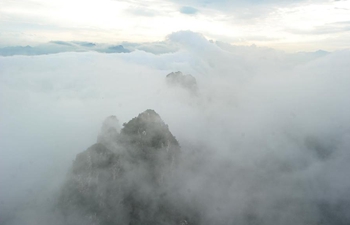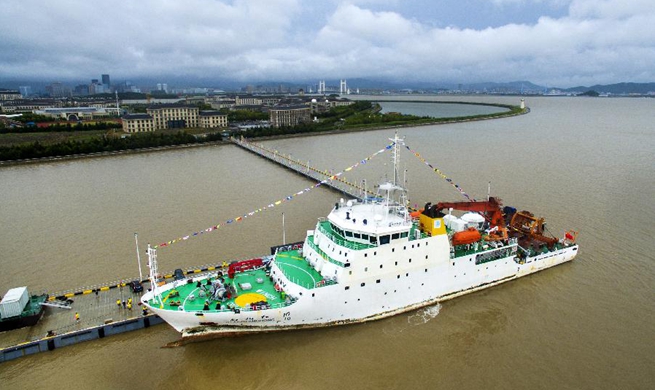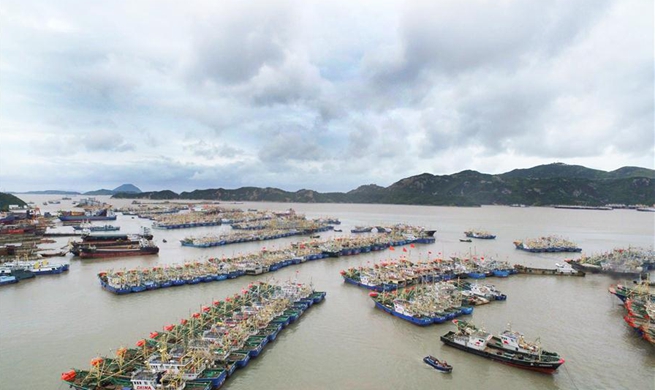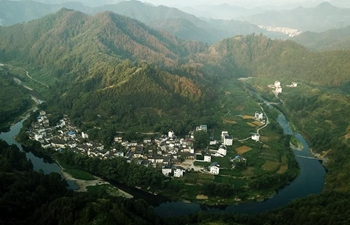SYDNEY, Aug. 13 (Xinhua) -- Australian scientists have tested an automated submarine in the country's deepest lake before setting it to use beneath the freezing waters of Antartica later this year.
The seven meter, 1,600 kilogram unmanned autonomous underwater vehicle (AUV) will be deployed beneath sea ice and ice shelves to collect important data from these extremely difficult to access areas.
"This summer the vehicle will be going to Antarctica for the first time," AUV facility manager Peter King told Xinhua on Monday.
"So in advance of that we did a bit of a dress rehearsal at Lake St Clare which is a high altitude, very deep, cold water lake."
Lake St Clare is located in Australia's southernmost State of Tasmania, which due to its extreme southerly latitude, acts as a base for much of the nation's Antarctic research.
The University of Tasmania led project aims to provide new insight into the role of Antarctica and the Southern Ocean in the global climate system, exploring over 1,000 metres beneath the frigid Antarctic waters.
For it's maiden mission, the team will launch the vehicle from the Davis research station before travelling 11 km to the Sorsdal Glacier, during which time the AUV will travel along the surface of the water, controlled by a team in a small chase boat.
However, once the AUV dives beneath the surface to start collecting data, it will be completely independent from the research team, mapping the shape of ice formations and collecting water and sediment samples autonomously.
"Once we get out to our destination and want to run an actual mission we basically program it a set of tasks and waypoints," King said.
There is not a lot known about the conditions the team will be exploring meaning the first steps will be to test the AUV's capacity, slowly increasing reach and depth as it proves its capability.
"There are examples of AUVs that have gone underneath the ice before and a couple have gone underneath the ice shelf," King said.
"But it's a very small club."













